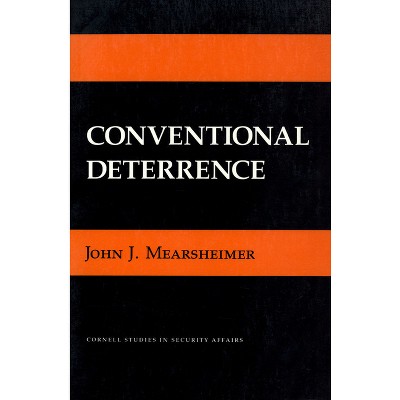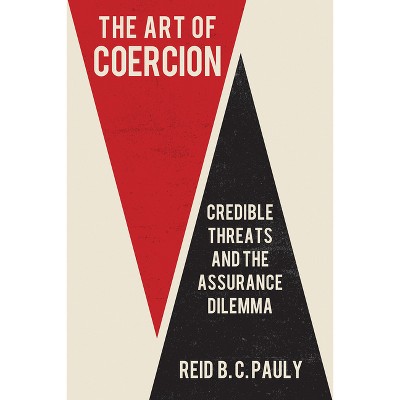Sponsored

The Sources of Military Doctrine - (Cornell Studies in Security Affairs) by Barry R Posen
In Stock
Sponsored
About this item
Highlights
- Barry R. Posen explores how military doctrine takes shape and the role it plays in grand strategy-that collection of military, economic, and political means and ends with which a state attempts to achieve security.
- About the Author: Barry R. Posen is Ford International Professor of Political Science and director of the Security Studies Program at MIT.
- 288 Pages
- History, Military
- Series Name: Cornell Studies in Security Affairs
Description
About the Book
Barry R. Posen explores how military doctrine takes shape and the role it plays in grand strategy--that collection of military, economic, and political means and ends with which a state attempts to achieve security.
Book Synopsis
Barry R. Posen explores how military doctrine takes shape and the role it plays in grand strategy-that collection of military, economic, and political means and ends with which a state attempts to achieve security. Posen isolates three crucial elements of a given strategic doctrine: its offensive, defensive, or deterrent characteristics, its integration of military resources with political aims, and the degree of military or operational innovation it contains. He then examines these components of doctrine from the perspectives of organization theory and balance of power theory, taking into account the influence of technology and geography.
Looking at interwar France, Britain, and Germany, Posen challenges each theory to explain the German Blitzkrieg, the British air defense system, and the French Army's defensive doctrine often associated with the Maginot Line. This rigorous comparative study, in which the balance of power theory emerges as the more useful, not only allows us to discover important implications for the study of national strategy today, but also serves to sharpen our understanding of the origins of World War II.
Review Quotes
This is a scholarly and conceptually ambitious work which seeks to explain how military doctrine takes place and its role in 'grand strategy.' The core of the study examines military doctrines in the interwar period, discussing the German blitzkrieg and British air defense system as successes, and the French army's Maginot Line doctrine as a great failure. Posen develops many intriguing ideas and theoretical insights, and debates those of his academic peers, in a rich volume that has to be studied as well as read.
-- "Foreign Affairs"About the Author
Barry R. Posen is Ford International Professor of Political Science and director of the Security Studies Program at MIT. He is the author of Restraint: A New Foundation for U.S. Grand Strategy, The Sources of Military Doctrine: France, Britain, and Germany between the World Wars (winner of the Furniss Award and the Woodrow Wilson Foundation Award) and Inadvertent Escalation: Conventional War and Nuclear Risks, all from Cornell.
Shipping details
Return details
Guests also viewed

Discover more options











